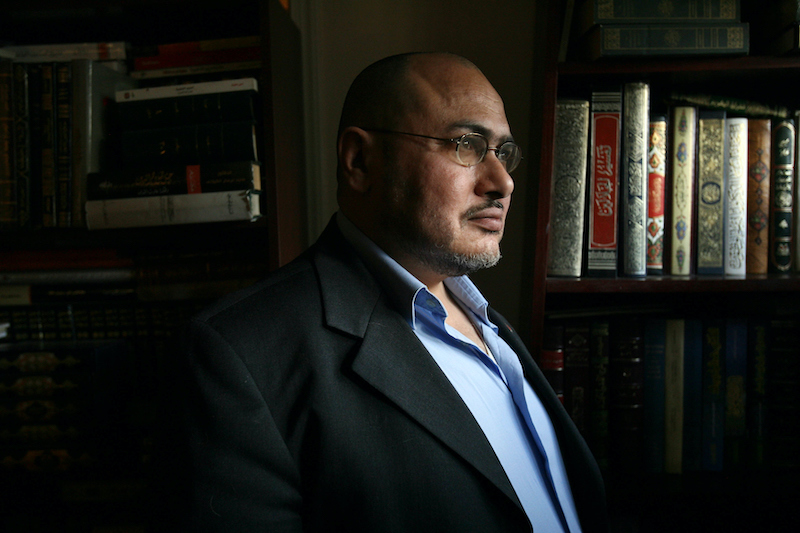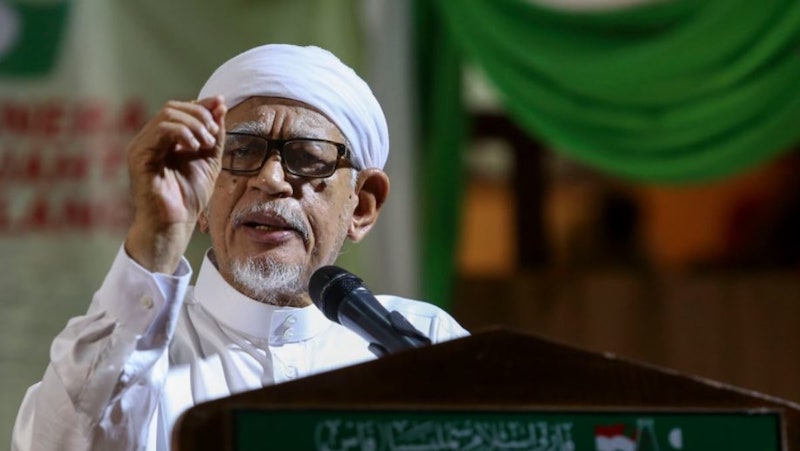I must confess, the idea of a puritan, “one true Islam” appealed to me a while back. With all the uncertainty that we face in our lives, a clear cut follow-this-and-you-will-go-to-heaven is deeply attractive. I may not get far in this world, but at least my soul will spend an eternity in pleasure.
But the same people who espoused this puritanical approach also claimed that nothing comes between Allah and I. That was when I realised I had bought into a huge scam. The idea that there is only one Islam and that nothing comes between you and Allah, cannot be simultaneously true.
Our best understanding of the divine is necessarily a human interpretation, and the judgement call on the “right” Islam is inevitably made by the powers that be, with all their attendant biases and agendas.
How then can anyone claim that nothing comes between me and Allah when my experience and relationship with the divine is shaped by whoever mandates what this “one true Islam” is?
Besides, the idea of a “one true Islam”, and hence a monolithic “global ummah” (community of believers) does not stand the test of history. In the 1,500 years since revelation, hundreds of madhahib (sing. madhab) or schools of thought had risen and gone extinct or are now under the broad umbrellas of the sects we have now – mainly the Sunni and Shi’a.
Muslim diversity
This diversity has been traditionally embraced throughout Muslim history. A recent example is the Amman Message. It was endorsed in 2005 by more than 200 prominent Muslim ‘ulama (religious scholars), academicians, political leaders, preachers and public intellectuals from around the world.
They recognised the validity of eight different madhahib: Hanafi, Maliki, Shafi’i, Hanbali, Ja’fari, Zaydi, Ibadi, and Zahiri. In other words, followers of all these schools of thought are Muslim and “declaring that person an apostate is impossible and impermissible”.
Furthermore, the document states that “disagreements between the ‘ulama (scholars) of the eight schools of Islamic jurisprudence are only with respect to the ancillary branches of religion (furu’) and not as regards the principles and fundamentals (usul) [of the religion of Islam]. Disagreement with respect to the ancillary branches of religion (furu’) is a mercy. Long ago it was said that variance in opinion among the ‘ulama (scholars) ‘is a good affair’.”
Not only is it reasonable that multiple expressions of faith abound, it “is a good affair” and a “mercy” even as we are rooted in the same core tenets encapsulated in the five pillars of Islam.
After all, the practise of our faith is a response to the world around us.
Take for example the practise of animal slaughter during Eid al-Adha. It is a long treasured tradition, but could circumstances have changed such that it may no longer be as relevant now in some parts of the world? Renowned scholar, Dr Khaled Abou El Fadl, who is traditionally trained in Islamic jurisprudence (fiqh), thinks so and published an edict, or fatwa, in 2016 to that effect.

Among other reasons, he pointed out that “the consumption of meat in pre-modern times was considered a delicacy that only the rich could afford. The poor preserved their livestock, usually for harvesting or the production of milk products, but they were rarely in a position to consume their livestock.”
So, the poor rarely enjoyed meat unless it was gifted to them. Changes in technology (such as refrigeration) and mass production of meat have driven down costs enough for most people, in the developed world at least, to eat meat regularly. “The gifting of meat does not carry the egalitarian meaning and purposes that it did in pre-modern times.”
Also, “the initial idea was to bring the various classes of society together in a social event where the poor dine with the rich, eating the food items of the rich at the same table”. Now though, too often the meat is distributed impersonally. Hence, instead of slaughter, opined Dr Khaled Abou El Fadl, it may be better to donate a sum of money to the poor and organise social events where the rich and poor dine together.
This fatwa however remains controversial even though animal slaughter during Eid al-Adha is an observance based on a tradition related to Prophet Abraham, and is not considered as a non-negotiable part of the fundamentals of faith (usul). The Qur’an itself states, with regards to animal sacrifice, that “it is not their meat nor their blood, that reaches Allah: it is your piety that reaches Him…” (22:37)
Broadly speaking, the changes in the socio-economic context between pre-modern times and now have warranted a change in the practises or particular expressions of the faith. It also stands to reason that the differences in contexts between one part of the world and another would will inevitably result in a variety of religious expressions on a variety of issues.
Unfortunately, what is reasonable is not always popular. In a 2012 Pew research, more than half of Muslims from 32 out of 39 countries surveyed believed that “there is only one correct way to understand” the teachings of Islam.
The danger of the myth
This belief puts Muslim communities at risk. Those who seek power will seek to monopolise the representation of Islam to win over the masses. This means suppressing differences, to purportedly protect the “one true Islam”, will be in the interest of the power hungry. Eventually, an authoritarian form of the faith will take shape.
For example, when famed Salafi jurist Mohammed al-Ghazali al-Saqqa published a book in 1989 that criticised the influence of Wahhabism, a predominant ideology of the Saudi rulers based on the Salafi creed, he was promptly refuted. The prompt flurry of books, articles, and even conferences centred around refuting the book were all done under the Saudi influence and sponsor. (Khaled Abou El Fadl, The Great Theft, 2007)
In 1970, a six-volume collection of the fatawa (sing. fatwa) by Rashid Rida was published by Dar al-Jil. Saudi Arabia paid Dar al-Jil such that it held on to the copyright but did not publish or distribute the collection. Rashid Rida was a Wahhabi apologist but also published liberal views that were at odds with Wahhabi thought. (Ibid).
In 2017, the Malaysian government banned the book Islam Without Extremes: A Muslim Case for Liberty by Mustafa Akyol as it was deemed prejudicial to public order. Two years prior, the government had banned four books by novelist Faisal Tehrani for supposedly promoting Shi’a teachings, which in their opinion was contrary to Sunni teachings.
This stance by a political entity is contrary to the established tradition as well as the position taken by leading Islamic jurists and theologians around the world today (such as the Amman Message). Malaysia itself, up to 1984, officially recognised Shi’ism as valid. What prompted the change?
Politics, undeniably, trumped or shaped theological opinions – a process now termed as the “politicisation of Islam”.

The denial of diversity can be understood as a ploy by political actors to shape a single narrative of what Islam means. This puts them in a position to then project themselves as the only ones who can defend the “one true Islam”. The aim is popular mobilisation around particular religious identity markers. In other words, it is both populism and sectarianisation combined. This is what makes religious extremism so prevalent today. It is not theology at work but the subversion of theology under political pursuits for domination, control, and power.
Therefore, the best antidote to sectarianisation is for the average Muslim to recognise that different orientations and schools of thought exist and differences between them are not necessarily wrong just because a particular viewpoint does not conform to their one particular interpretation.
As long as the differences do not concern the fundamentals – which are very few to begin with – we must refrain from the all-too-common takfiri (declaring someone an apostate or to excommunicate) stance. The Muslim ummah or community is not monolithic. Any attempt to paint it as such must be viewed with suspicion: there are interests involved and hidden inside it is the desire for monopoly, power and control.
If the Prophet had once declared that “differences of opinion in the ummah is a blessing (ikhtilafu ummati rahmah)”, then we need to defend diversity itself. We should allow a dynamic process to emerge where interpretations of Islam are left to constant negotiations in society and played out through the historical process – not through political expediencies that hide authoritarianism in practise.
For this to happen, standards in society must be raised so that an informed and critical public will not be easily swayed by populist rhetoric nor duped by the promises of heaven and threats of hell by those who are in pursuit of power and not the divine.
This article was first published in 2017 as “in the book Budi Kritik, a collection of essays on Singapore Malays. You can buy the book here.
Featured Image, Zakir Naik, taken from Al-Jazeera online

Pingback: Bigotry in the Muslim backyard - MD SUHAILE
Pingback: Bigotry in the Muslim backyard - MD SUHAILE